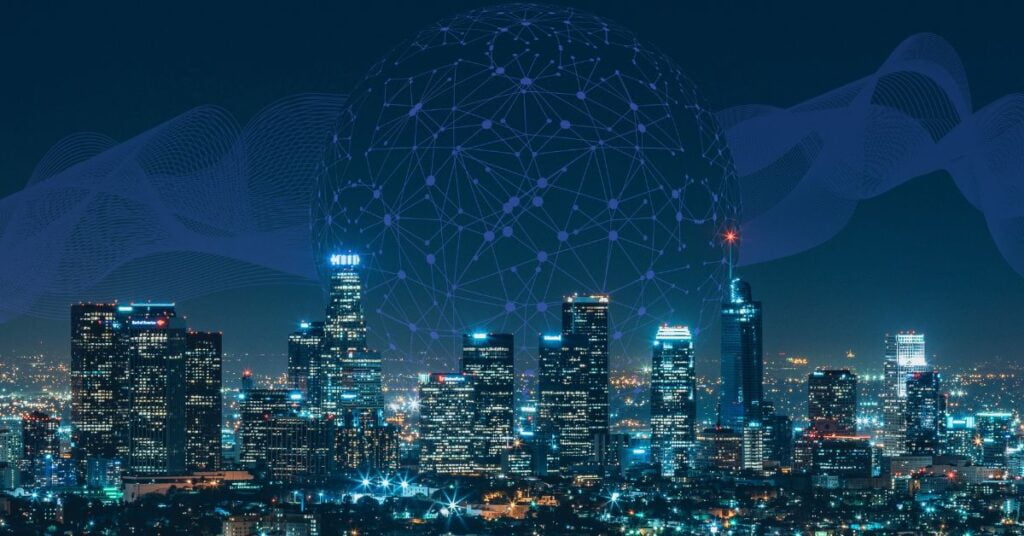
In the past few years, the technology we have has gone through a transformation that promises to redefine the way we live, work, and interact with our surroundings. Welcome to the exciting domain where Artificial Intelligence (AI) and the Internet of Things (IoT) are merging to form a revolution that transcends our expectations and stretches the boundaries of human innovation.
Imagine a world where your home knows your every need, adjusting its temperature, lighting, and entertainment to perfectly match your preferences. Envision a city that not only thrives but also cares for its citizens, managing traffic, waste, and healthcare services with uncanny efficiency. This visionary world is not science fiction; it’s the unfolding reality of the AI-IoT fusion. Let’s dive into the more specific details and the work that has been done through this fusion in the past few years.
The Rise of Smart Homes
Smart homes have experienced a meteoric rise in popularity over the past decade. These homes are equipped with advanced technologies that allow homeowners to control various aspects of their living spaces remotely. From adjusting the thermostat to turning off the lights, these homes are becoming increasingly intuitive.
The Role of Artificial Intelligence (AI) in Smart Homes
1. AI-Powered Home Assistants
One of the most revolutionary applications of AI in smart homes is the integration of AI-powered home assistants, such as Amazon’s Alexa and Google Assistant. These virtual companions can perform tasks such as setting reminders, answering questions, and controlling a wide range of connected devices.
2. Energy Efficiency
AI is harnessed to optimize energy consumption by learning household routines and preferences. Smart thermostats, for example, adapt to user behavior, ensuring that energy is not wasted when no one is at home. These energy-saving measures not only benefit homeowners but also contribute to environmental sustainability.
3. Security Systems
Security is a paramount concern in smart homes, and AI-driven security systems have raised the bar in this regard. These systems utilize facial recognition and pattern recognition to enhance home security. They can distinguish between familiar faces and potential threats, providing an added layer of protection for residents.
The Internet of Things (IoT) Revolution
1. IoT Devices in Smart Homes
IoT devices play a pivotal role in the smart home ecosystem. They include smart refrigerators, connected thermostats, and even intelligent ovens. These devices collect data and interact with other smart devices, improving overall efficiency and enhancing the user experience.
2. IoT in Healthcare
The impact of IoT extends far beyond smart homes. In healthcare, IoT devices have revolutionized patient monitoring and healthcare delivery. Devices that monitor patients’ health parameters and transmit data to healthcare providers have enabled remote monitoring and timely medical interventions, reducing hospital visits and improving patient outcomes.
3. IoT in Transportation
In the realm of transportation, IoT sensors are employed for advanced traffic management. Real-time data collection allows for efficient traffic flow and congestion reduction. This not only saves time for commuters but also contributes to a cleaner, more sustainable environment by reducing emissions.
The Synergy of AI and IoT
The real transformation occurs when AI and IoT come together in a symbiotic relationship.
1. Enhanced Data Analysis
AI processes the massive volume of data generated by IoT devices, providing valuable insights and patterns. This data analysis enables better decision-making across various fields, from business operations to healthcare. In healthcare, for instance, AI can analyze patient data collected through IoT devices to identify trends and anomalies, aiding in the early detection of diseases.
2. Predictive Maintenance
AI’s predictive capabilities extend to maintenance. By analyzing data from IoT devices, AI can predict when a device or machine will fail. This predictive maintenance not only reduces downtime but also minimizes maintenance costs. In industries reliant on machinery, this can be a game-changer.
The Journey Toward Smart Cities
As smart homes continue to evolve, our vision extends to encompass smarter and more efficient urban living in smart cities.
AI and IoT in Smart Cities
1. Traffic Management
Smart traffic management systems, powered by AI and IoT, can adjust traffic signals in real-time based on traffic flow, reducing congestion and emissions. This leads to more efficient transportation, shorter commutes, and cleaner air.
2. Waste Management
Waste management in smart cities is optimized through IoT sensors that monitor trash levels in bins. This data-driven approach ensures that waste collection is not only efficient but also environmentally friendly, reducing unnecessary trips and emissions.
3. Healthcare Services
IoT and AI are integral to improving healthcare services in smart cities. From telemedicine to the monitoring of public health data, these technologies help ensure timely access to medical care and promote healthier communities.
Challenges and Concerns
The rapid integration of AI and IoT into our daily lives has brought with it some unique challenges and concerns.
Privacy and Security
As more devices gather and transmit data, data privacy and cybersecurity become paramount concerns. Ensuring that personal data is secure and used responsibly is a complex challenge that needs ongoing attention.
Infrastructure
Developing smart cities requires significant infrastructure investment, which can be a challenge for many regions. Upgrading existing infrastructure to support AI and IoT technologies is a considerable endeavor.
Conclusion
Despite the challenges, the future of AI and IoT looks exceedingly promising. As technology continues to evolve, we can expect even more significant advancements in smart homes and smart cities.
The fusion of AI and IoT is not merely a technological evolution but a revolution that is transforming our world. From smart homes that offer unmatched convenience and energy efficiency to the grand vision of smart cities prioritizing sustainability and a higher quality of life, AI and IoT are reshaping the way we live and interact with our surroundings.
That was all from my side for today, if you are interested in learning more about automation, RPA, and AI then stay tuned for more of our blogs.